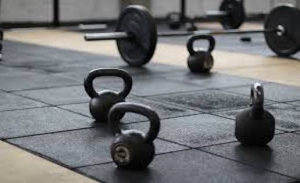
If you’re a man with a waistline circumference over 40 inches and you’re struggling to get your weight and health under control, you may be dealing with metabolic syndrome. If you’ve visited a doctor and found elevated blood pressure, cholesterol levels, blood sugar levels, and prediabetes, you might be feeling helpless and vulnerable to your increased risk of health complications. You’re probably wondering what you can do to lower your risk and get your health back under control.
Placing the term “metabolic syndrome” on your health concerns can be validating. And if you are one of the 32% of the U.S. population with metabolic syndrome, you can find solace in understanding how metabolic syndrome works… and how you can treat it naturally and easily.
What is metabolic syndrome?
“Metabolic” refers to the biochemical processes that allow for your body’s healthy, normal functioning. This includes your metabolism, which is the process that turns your food nutrients into energy that the body uses to stay operating at optimal capacity.
Metabolic syndrome, often also called syndrome X or insulin resistance syndrome, is itself not a disease. It’s the term given to a collection of conditions that together increase your risk for serious diseases, like cardiovascular disease and diabetes.
General conditions of metabolic syndrome include:
- Insulin resistance (pre-diabetes)
- Hypertension (high blood pressure)
- High cholesterol
- High blood sugar
- Obesity
Together, these conditions increase your risk of clotting, such as stroke and heart attack. They also put you at severe risk for heart disease and diabetes (especially type 2).
Metabolic disease is found in 82% of diabetic patients because it’s linked to insulin resistance. If you have metabolic disease, your cells aren’t able to respond to insulin—the hormone that helps your cells use sugar as fuel and energy. In this way, you start to have more free-floating sugar in your blood. Your body starts to respond to this increase in glucose levels by churning out more insulin. Suddenly, you’re overloaded with sugar in your blood, useless insulin floating around… and your body is unregulated, unhappy, and unable to function.
Moreover, insulin resistance, cardiovascular disease, and diabetes all have one key thing in common (aside from being horrible for your wellbeing):
They are known causes of erectile dysfunction and low testosterone.
Yes, that means that metabolic syndrome is hurting your sex life!
(Also, metabolic syndrome may cause kidney disease, sleep apnea, fatty liver syndrome, increased risk of dementia, and cognitive decline.)
This means that metabolic syndrome has a direct effect on your heart health, blood health, organ health, and sexual health—all of which are vital parts of life and wellness (especially the sexual health, if you ask me).
Metabolic syndrome negatively influences your overall health and way of life. Most likely, you are not in the physical shape you used to be, which can damage your everyday life. You may have lowered energy, be more tired, lose concentration, and feel unsatisfied with your health. You can’t play with your kids like you used to and your dog misses going on long walks in the park.
Moreover, this increased risk of serious diseases can take a toll on your emotional wellbeing. You aren’t living the healthy, fruitful life you want, and you’re constantly weighed down with the pressing thought that you are a ticking time bomb of diseases.
But you don’t need to suffer anymore.
What are the symptoms of metabolic syndrome?
Metabolic syndrome usually does not have any visible symptoms. The number one symptom is a large waist circumference, over 40 inches for men and 35 inches for women. If you are overweight or obese, your doctor will likely test your levels to see if you have metabolic syndrome.
If you have at least three of the following traits, your doctor will likely diagnose you with metabolic syndrome:
- Waist circumference 40” or more
- Reduced HDL cholesterol (good cholesterol) lower than 40mg/dl
- High triglyceride level above 150 mg/dl
- Increased blood pressure above 135/85
- Elevated fasting blood sugar over 100 mg/dl
What are the causes of metabolic syndrome?
There is really only one cause of metabolic syndrome: fat. The more fat you have stored on your body, the more likely you will have problems with your cholesterol, blood pressure, and blood sugar.
Those who are overweight or obese are significantly more likely to have metabolic syndrome. In fact, metabolic syndrome is found in 22% of people who are clinically overweight, 60% of those who are obese, and only 5% of those with a normal body weight. The risks of metabolic syndrome increase the faster you gain weight as well; your risk increases by 45% for every 5 pounds you gain per year.

There are a few other risk factors for metabolic syndrome, but they almost all relate back to your weight.
Age is considered a risk factor, but this is likely because most of us tend to gain weight as we age. In fact, about 40% of Americans over age 60 are affected. As you get older, it gets harder and harder to shed pounds like you used to. Your metabolism (key word here) isn’t as fast or forceful as it used to be. Gone are the days where you could down a cheeseburger and feel nothing. Now, it seems that 3-pound cheeseburger makes you gain 8 pounds on the spot.
Moreover, as men age, our testosterone levels naturally begin to decline. Low testosterone is linked to increased weight gain and loss of muscle mass. If your hormones are out of whack due to age, diet, or lack of exercise—you’ll start to gain weight and diminish your body’s natural functioning. Learn how to normalize your hormones in 5 easy steps here.
Additionally, those with diabetes and other diseases are more likely to have metabolic syndrome. This is likely because their metabolic syndrome caused their diabetes or diseases.
Smoking is another risk factor for metabolic syndrome. Although not studied, it’s highly probable that those 5% of people with average body weight who have metabolic syndrome are regular smokers.
P.S, Race is not a factor in metabolic syndrome. However, some studies suggest that Mexican-Americans have the highest prevalence of metabolic syndrome in the U.S. The reason is still unclear, though it may have to do with a fattier and heartier diet.
How do you treat metabolic syndrome?
But I have good news to share. Metabolic syndrome is completely curable. You don’t need expensive medications with harsh side effects. You don’t need surgery. And you don’t need secret medicines from secret places.
Metabolic syndrome is completely treatable with lifestyle changes.
And I know this, because I’ve been there.
I went to my doctor for a routine physical exam and found out I was 25 pounds overweight with a cholesterol of 245. When my doctor reviewed life expectancy charts based on my medical history and current health levels… I suddenly realized my own imminent mortality.
I decided to make a change in my lifestyle. In 6 months, I went for a follow-up visit to my doc. I had lost over 20 pounds and reduced my cholesterol to 195. Better yet, I was feeling the best I’d felt since my 20s!
So before you start scoffing at “lifestyle changes”… I’m living proof that it works. These changes in your sedentary lifestyle can help attack the underlying cause of metabolic disease: your weight and your hormones.
So what can you do to get rid of metabolic syndrome and lower your risk for the associated problems like cardiovascular disease, diabetes, and *gulp* erectile dysfunction?
By the way, do you know what the second definition of metabolic is?
metabolic (adj): undergoing metamorphosis
It’s time to metamorphose and change your body RIGHT NOW to start lowering your health risks.
1. Boost your metabolism.
If you want to overcome metabolic syndrome, you want to start by boosting your metabolism. Makes sense, right? The metabolism is the natural function that uses food to create energy. The higher your metabolism, the faster you burn calories and fat storage. The slower your metabolism, the more likely you’ll store fat and calories.
Metabolism naturally declines as we age. This decline often makes us gain weight. Moreover, people who are overweight tend to have a lower metabolism generally, because the added fat stress on the body slows down the metabolic processes (hence metabolic syndrome). This causes us to gain even more weight.
It’s a vicious cycle!
It’s time to break it. Who’s with me?
Below are the ways you can boost your metabolism and lose weight—the two keys to unlocking the cure to metabolic disease.
2. Get active.
Metabolic syndrome is directly linked to an inactive lifestyle. You need to get up and move around if you want to burn calories, lose weight, and keep your body’s functioning in shape. Sitting down is proven to be horrible for your health and can lead to weight gain, bone problems, mental concerns, and more. Even just standing up during the workday has been shown to burn an extra 174 calories per day!
Get at least 30 minutes of moderate exercise each day. Even making small changes can help you reach this goal. Take the stairs instead of the elevator. Bike to work instead of drive. Play with your kids outside instead of on the Xbox.

The best way to burn fat and boost your testosterone (which helps you burn fat) is HIIT. High-intensity interval training is when you perform quick bursts of high-intensity movement with longer periods of rest and slow movement.
HIIT has been shown to burn more calories and boost fat loss in the short- and long-term. One study of overweight men found that 12 weeks of HIIT reduced their fat mass by 17%.
HIIT also increases your metabolic rate, even hours after your workout has finished. In fact, one study found that just two minutes of sprint exercises elicited the same oxygen and energy consumption as 30 minutes of continuous endurance exercise. That means that HIIT can help you get stronger results for your active 30 minutes every day over traditional forms of exercise.
I recommend mixing HIIT with lifting. Lifting weights has also been shown to increase your resting metabolism by helping to build muscle. The more muscle you have, the more your body burns fat. Also, the more muscle you have, the higher your testosterone levels. And increased testosterone can help you lose weight—oh, and have a stronger libido and better erections.
Lift weights with high resistance for short periods. This means lifting heavier weights for fewer reps. This will get you the benefits of both HIIT and lifting, so you’ll see fast fat loss and increased metabolism!
3. Eat well.
Cut out processed carbs and sugar. These go right to your gut and increase your waistline and risk for metabolic disease.
The best diet for metabolic disease, losing weight, and overall health is the Mediterranean diet. Studies have shown that men on the Mediterranean diet usually have a decrease in body weight and improvements in blood pressure, cholesterol levels, and heart disease. There are also proven links between the Mediterranean diet and a reduced risk of erectile dysfunction. This diet consists highly of fruits, veggies, fish, and whole grains. Oh, and hummus, olive oil, and wine! Yes, I said wine!

(That reminds me. Avoid beer. Beer is high in calories and low in nutrients, which will quickly cause you to gain weight. It’s also highly estrogenic. Estrogen stores fat and kills your testosterone levels. Learn more about the relationship between estrogen, testosterone, and beer here.)
You should also make sure you’re eating enough protein. Normal protein intake is necessary for weight maintenance. I’ll note here that I do not believe in an all-protein diet. You need all three macronutrients (proteins, carbs, and fats) to be healthy. However, you also shouldn’t have an all-carb or all-fat diet, as many Americans us do.
Proteins help you burn more calories, feel more satiated after eating, and suppress your appetite to avoid overeating. This, in turn, leads to weight loss and a boost in metabolism. In fact, protein has been shown to increase resting metabolic rate by 15-30%. Protein can also help you lose fat without losing muscle, which is a common concern when on strict diets.
You should also add more spices to your diet! Spicy food contains capsaicin, which is a healthy antioxidant for the body. Some studies suggest that capsaicin in spicy foods helps to raise your metabolism and aid in weight loss efforts.
Read 13 Natural, Edible Vasodilators To Treat Your ED to find more specific foods that can help reduce your waistline and improve your sex life!
4. Sleep more.
Lack of sleep is directly linked to obesity. This is because lack of sleep lowers your metabolism, forces you to eat more, and unbalances your hormones.
First, sleep deprivation lowers your metabolism drastically. In fact, a lack of sleep may be the leading cause of today’s obesity problem among America’s stressed, overworked population. Sleep deprivation also elevates blood sugar levels and increases the body’s insulin resistance, which both lead to type 2 diabetes.
Moreover, a lack of sleep causes your body to require more food to make up for the lost energy. This means you’ll eat need to eat more calories in order to stay awake. This will up your caloric intake and cause you to gain weight. In addition, your tired body will be trying to conserve energy (aka fat) rather than burn it. So no matter how much you workout or how little you eat, your body will be holding on to its fat stores as a way to make up for the sleepless lack of energy.
So get some sleep…
5. Manage your stress.
Stress often leads to emotional and physical disaster. Over-eating and a sedentary lifestyle caused by stress can quickly rack up the pounds. Stress can also cause a loss of sleep, as discussed above.
Stress also increases your cortisol levels, which contributes to weight gain, lowered testosterone, an anxious mental state, and increased blood pressure. Learn more about how cortisol and other hormones affect your weight and health here.

So how do you manage stress? There are a number of methods, and you need to find the one that’s best for you. Some great places to start include:
- Talking to a professional about your stress
- Yoga and exercise (Yup, getting active will also help manage your stress and lower cortisol levels.)
- Meditation
- Green tea
- Spending more time with family and friends
6. Drink more water.
Drinking water can help boost metabolism and increase weight loss. Drinking water has been shown to increase short-term resting metabolism by 10-30% for an hour. Moreover, consuming cold water burns calories, because your body has to use energy to heat up the liquid to body temperature (water-induced thermogenesis). Plus, water can fill you up so you’ll eat less. In fact, one study found that overweight adults who drank half a liter of water before meals lost 44% more weight than those who didn’t.

7. Stop smoking.
Seriously. Stop. Smoking is a leading cause for metabolic syndrome, heart disease, erectile dysfunction, and cancers. If you need help quitting, talk to a professional who can help get you on the right track.
Bottom Line
Metabolic syndrome and its linked risks can be frightening. If you’ve seen your mortality flash before your eyes, it’s time to put away your fears. With the above 7 lifestyle changes, you can and WILL overcome metabolic syndrome. You’ll lose weight, reduce your insulin resistance and blood pressure, and decrease your risk of associated diseases.
And guess what? You don’t have to do it alone. I’ve been there. I’ve seen my life expectancy chart, and I’ve made the changes myself.
I did it in 6 months. And I’ve continued making changes and studying men’s wellness ever since.
Why? So that you don’t have to.
Sign up for our G1 Performance Health program and get years of expertise… today! With this genetic-based report and private consultation, you can lose weight, reduce your risk of metabolic syndrome, and be on the road to overall health and wellness.
What will YOU look like next month?
Sign up for G1 Performance Health right now, find your vitality and achieve your maximum potential.




























